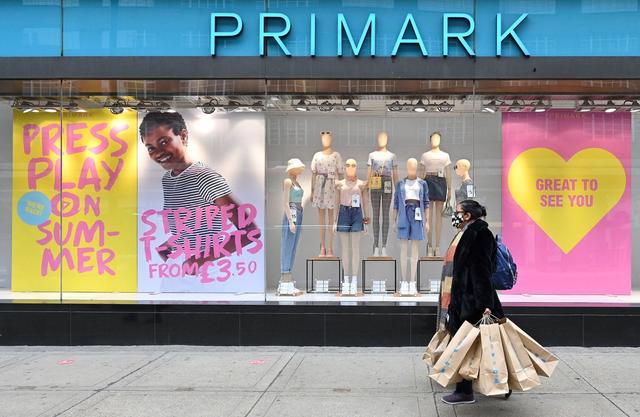Primark promises less polluting clothes
The brand undertakes to "make all clothes from recycled materials or from more durable sources" or to "reduce by half of carbon emissions in the entire value chain" by 2030,According to a statement on Wednesday of his parent company Associated British Foods.The clothes sold by Primark, which is one of the signs qualified as "fast fashion" (or disposable mode), will also have to be designed from the outset to have a longer lifespan by 2025 and to be able to be recycled'Here 2027, continued the press release.
The commitments also relate to the remuneration of textile workers in a sector often accused of making its employees work for emoluments not allowing to live decently and sometimes in insufficient health conditions.Primark thus affirms that all workers in his global supply chain will have to benefit from a decent salary by 2030.
Bounce
This strategy "will only lead to a modest cost increase" for the company by 2030, estimates its parent company, adding that it is an "opportunity to stimulate sales growth"."Our ambition is to offer consumers affordable prices for which they know us and appreciate us, but with products manufactured in a better way for the planet and those who make them," said the CEO of Primark, Paul Marchant, in another press release.

The confinements weighed heavily on the ready-to-wear brand, which had notably closed all of its 189 stores in the United Kingdom in March 2020 and whose sales had plunged 30% during the last four months ofThe year.But his income rebounded this year thanks to the reopening of all its stores, reaching 1.6 billion pounds in his third quirk, ending on June 19, 2021, against 600 million pounds a year earlier, announcedThe group in early July.
Forced work of Uighurs in China
"The world fashion industry is a huge polluter, and most clothes worldwide are made to the detriment of the environment and workers' rights," the NGO Greenpeace recently denounced in the United Kingdom.
On the social side, the sector notably saw its image tarnished by the drama of collapse in April 2013 of the Rana Plaza, a workshop of making in Dacca (Bangladesh), or by the reports on the use by certain cotton brands from theForced work of Uighurs in China.In the United Kingdom, the Boohoo brand has notably been castigated by certain NGOs for working conditions and wages of misery in certain subcontractors.
(The essential/AFP)








